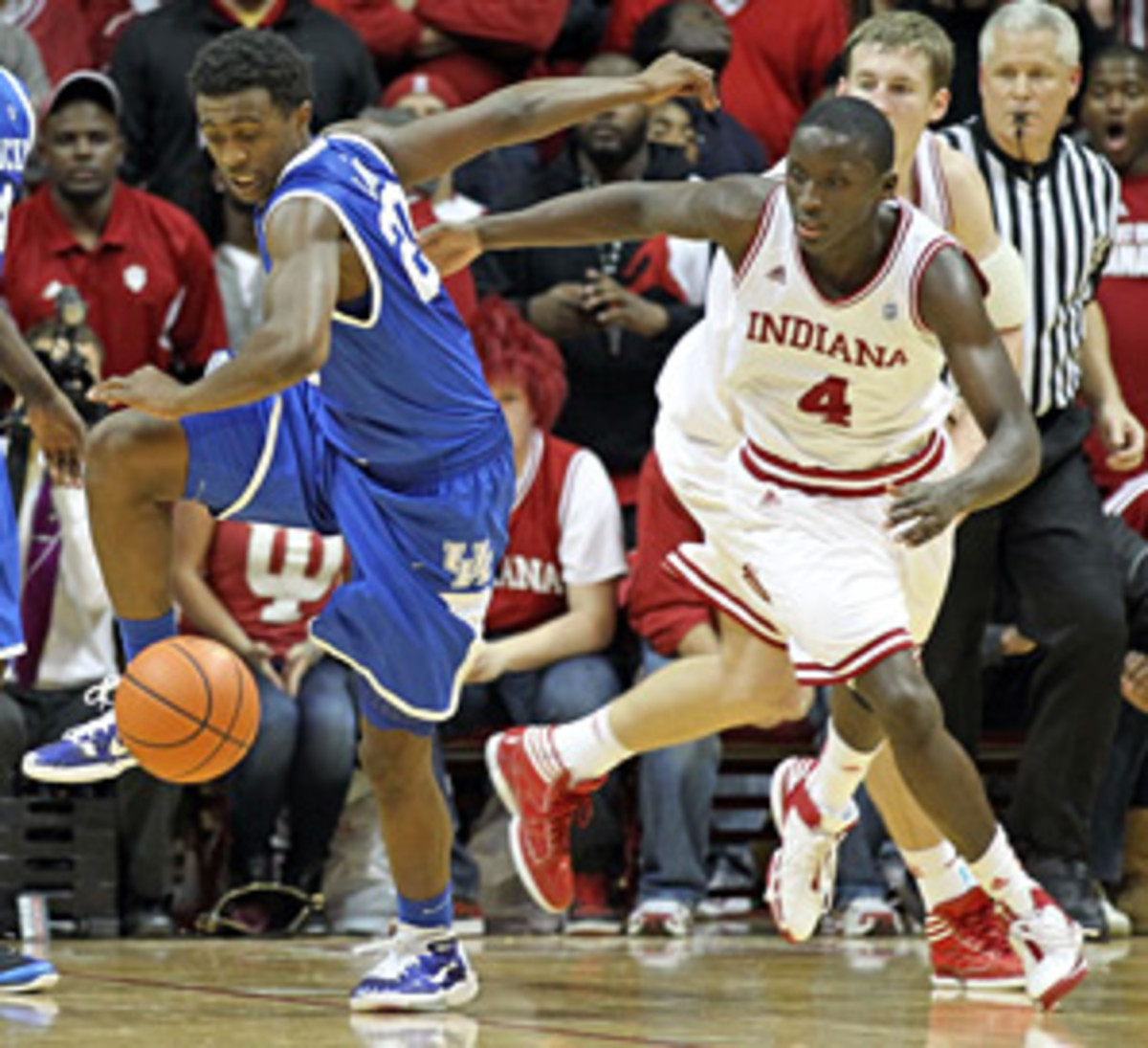End of Indiana-Kentucky matchup shows need for significant reform
It's no secret that the sport is being perceived more and more as a six-week product, that college and then pro football rule the roost into early February and then casual fans maybe start paying attention to conference races. The importance of those conference races are, for most intents and purposes, diminished by this nation's obsession with knockout tournaments and brackets. Championship week, bubble talk and then the NCAAs define our sport. Nothing else matters much at all to outsiders. The best regular-season matchups have ratings dwarfed by mediocre college football games.
It's becoming more and more reasonable to argue that significant reform is needed. Much like women's college basketball put some schedule separation between its marquee tournament and the men's event that dwarfs it, men's basketball may have to get away from football to thrive. Making hoops a one-semester sport from January to May has a lot of merit. Short of calendrical reinvention, though, there is still much that can be accomplished, and a lot of it has to do with nonconference scheduling and making the regular season matter more.
On Twitter for awhile and then recently on a podcast with CBSSports.com's Matt Norlander, there has been some playful but engaging discussion of John Infante's "College Basketball Champions League" idea, copped from the lucrative European club soccer showcase event. The fully flushed-out version opens up the current NCAA tournament to all 345 Division I teams, making it a true "Cup" event, and would create a second season-long competition for the best teams in all 31 D-I conferences. You qualify for the CBBCL each season based on how you finish in your league. Every year, you need to make it again for the next season.
Whether anything like that could be set up any time soon in actuality is immaterial. What matters is what the hypothetical would look like, and how the major issues of nonleague scheduling and importance of the regular season would be improved dramatically for the nation's top teams. Take one of our two schedule protagonists, for example.
Here is Kentucky's nonleague schedule from last season:
Marist, Kansas, Penn State, Old Dominion, Radford, Portland, Saint John's, North Carolina, Indiana, Chattanooga, Samford, Loyola (Md.), Lamar, Louisville, Arkansas-Little Rock. Four very good games along with a bunch of Rupp Arena walkovers.
And here is the Wildcats' hypothetical nonleague schedule based on the CBBCL "draw" done last week:
Home-and-home series with Marquette, Middle Tennessee State and Southern Miss, a probable home-and-home with Wichita State or Florida State, perhaps some additional knockout rounds in the CBBCL against heavyweights, and some home filler for early-season prep.
Which would you rather see, especially given the CBBCL games and the SEC conference games would matter a lot to the Wildcats? The combination of the increased importance of almost every game, the tastier matchups and that teams like Kentucky would play several extra demanding true road games a season make that a win-win for everyone involved.
Oh, and where's Indiana, you ask? The Hoosiers didn't qualify for the CBBCL after their fifth-place finish in the Big Ten. Think that would be a storyline?
Anyway, none of that is going to happen in our lifetimes, but the underlying points remain. College basketball is being marginalized for the casual fan because it plays far too few games that actually matter. League results won't increase in importance without significant shifts in the sports' structure (and profit centers) -- does anyone remember if NC State finished fifth or sixth in the ACC this season prior to its Sweet 16 run? That leaves nonconference scheduling, where too many elite programs are incentivized to manage their schedules in a way that benefits them to the detriment of the game's fans.
That part has to change. That's why the Kentucky-Indiana tiff matters. And that's why it stinks that we won't be getting that game this season. We need it, and many more like it, as a start toward reinvention.





